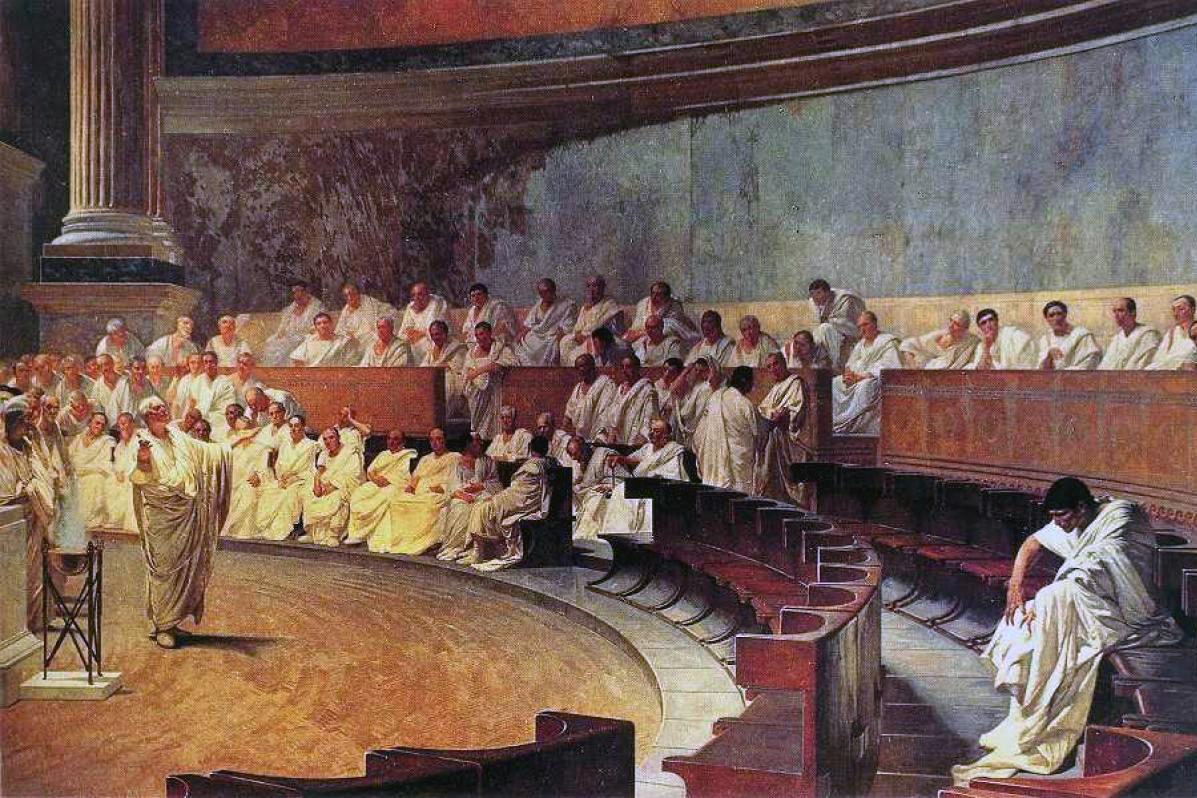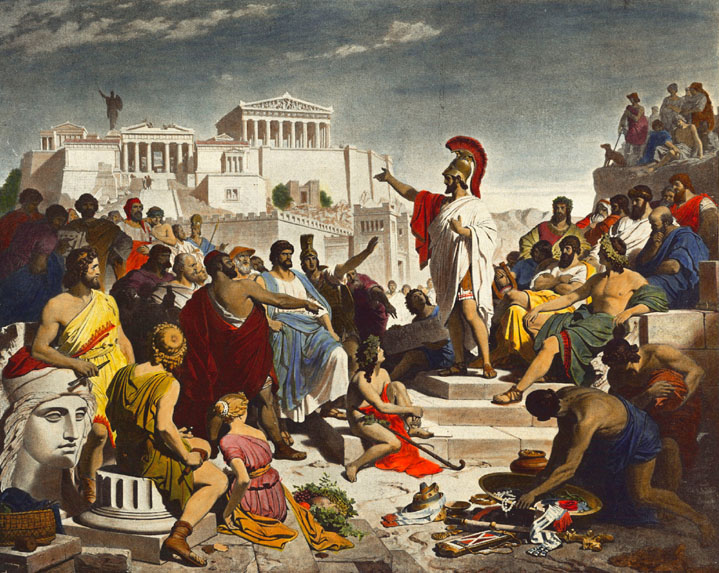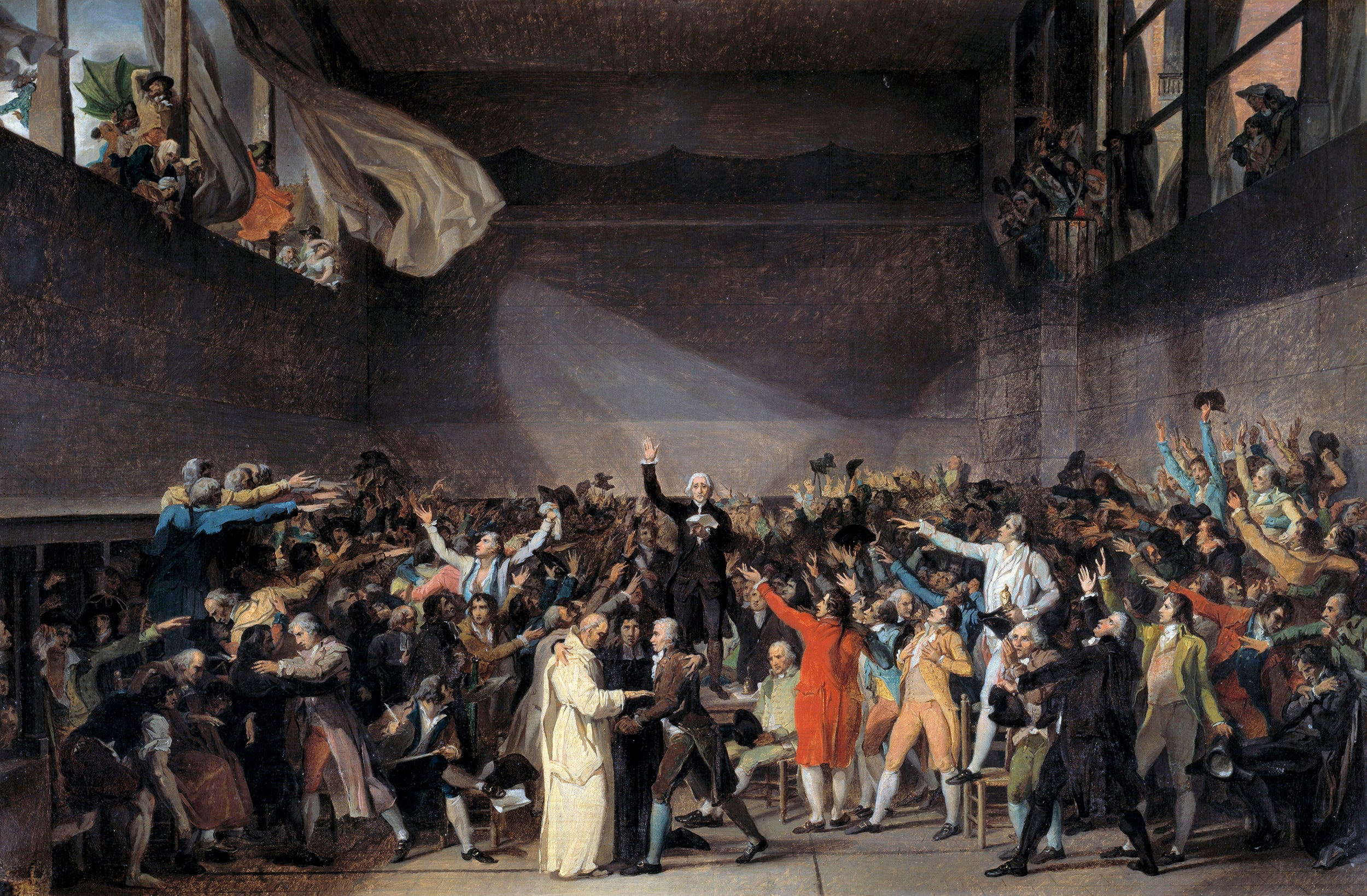A brief history of democracy: Does it still convey the 'will of the people'?
The ancient Athenian ideal of direct plebiscite has over time transformed into a pre-fascist state of political being and is under direct assault from the machinations of the dark web

Brexit – wrecks it? Let’s forget for a moment about 23 June 2016.
Suppose we were to enter a time-machine and have ourselves transported back 2,500 years to ancient Athens. There we would find ourselves in the Greek city that invented “democracy”, both the word and the thing – government by mass meeting. There, a plebiscitary referendum style of government was the norm, not a desperate, abnormal expedient. It happened regularly, once a month, even as frequently as every 10 days. For there and then the demos (people) of the Athenians really did hold and exercise the kratos (power) over the public organs of governance, and the right to decide, by majority vote, what the laws and policy of the Athenian state should be.
Flash-forward to 1863, Gettysberg, Pennsylvania. In his great address President Lincoln hailed his own state’s political system as a form of democracy: “government of the people, by the people, for the people”. But what a difference a millennium or two had made. From the originary, Athenian meaning of democracy to the Civil War-torn Americans’ etiolated, watered-down version of indirect, representative parliamentary democracy was a very long stretch indeed.
Since then, democracy in its various Western forms has taken a few mighty steps forward, not least the move to full adult suffrage regardless (in theory) of gender, race or creed, as well as economic status.
It has also, alas, taken several steps back. Learning nothing and forgetting nothing from the ghastly 20th century experience – in the ugly shape of more or less authoritarian, even totalitarian, dictatorships of various stripes – we seem to have entered, in the 21st century, a proto- or possibly even pre-fascist state of political being. “Democracy” currently suffers from fake appropriations flying under the banner of populism. Genuine democracy is under covert assault from the low-intensity, digital operations of the dark web – and Cambridge Analytica: a monstrous abduction, surely. It’s these vicissitudes of democracy, its twists and turns from antiquity to modernity, its radical transformations, that my 2016 book Democracy: A Life and its new (2018) afterword seek to chart.

There were many political entities in ancient Greece and several different forms of democracy. The ancient Athenians alone had – over a period of almost 200 years – at least three significantly different versions of Project Democracy. After the revolution of 508/7BC that brought an early form of democracy into fledgling being, a further flurry of reforms in 462/1BC gave political access to ever-widening layers of the qualified Athenian people: that is, free and legitimate adult males over the age of 18. That applied to, at most 50,000 to 60,000 out of a total population – including citizen females and children, resident foreigners and slaves – of 250,000 or so, all confined to a space the size of Derbyshire or Luxembourg today.

A very long inter-Greek war saw Athens heavily defeated and its democracy replaced briefly by a brutal dictatorship, but within a year a democratic restoration ushered in a less extreme and therefore more stable governmental form that lasted for almost 80 years. Towards the end of that period, Aristotle, the giant thinker, classified and analysed all the main Greek forms of governance – monarchic and oligarchic as well as democratic. Most of the thousand or so existing Greek communities then enjoyed, or at least experienced, some version of either democracy or oligarchy (the rule of the few rich citizens). But most oligarchs in most cities virulently hated democracy – the rule of the many poor over their few rich social superiors – as they saw it, an early form of the dictatorship of the proletariat. From the end of the fourth century BC and for the rest of Graeco-Roman antiquity, direct mass democracy of the classical Athenian type was suppressed, often violently, in favour of variously moderate or extreme forms of oligarchy.
In direct consequence, the meanings of the Greek word demokratia modulated accordingly. Instead of people-power, it came to have the force of our (Latin-derived) word republic: that is, not monarchy, and in practice rule by the rich or richer minority. The Romans who conquered the Greek world between the third and first centuries BC had their own peculiar version of republicanism at home. Abroad, they abhorred Greek-style primary demokratia and stamped out any remaining vestiges. When the Roman Republic transitioned into a disguised monarchy, fawning Greek intellectuals committed the linguistic crime of describing the Roman imperial system as itself a form of demokratia – under one man. But worse was yet to come. From the 330BCs and the Christian revolution of Constantine onwards, absolute monarchy was buttressed by theocracy, leaving no place whatsoever for the people as a recognised political force of any description. Within the reign of Byzantine emperor Justinian (AD527-565) demokratia, the word, plunged to its nadir: making literal the implicit negativity of demos as the unwashed masses of the “people”, a pietistic chronicler used it to mean “riot” – a particularly unacceptable form of mob rule.
Thereafter the word existed in its Latin transliteration as democratia, but had no real content or application outside scholarly or pious treatises. It took the antiquity-worshipping Renaissance to rediscover some virtue in the notion of popular political presence, the 17th century in England to put republican, parliamentary flesh on that skeleton – an evolution symbolised by the regicide of Charles I in 1649. But modern democracy – or rather democracies – owe their origin more specially to the American and French Revolutions and their respective aftermaths. The remarkable English-born Thomas Paine straddled both Revolutions like a populist colossus and gave, in outline, both secular reason and uncommon sense to the ideas of representative and even social democracy.

In fits and starts the idea of universal suffrage took hold and gained currency in the UK, alongside and sometimes in formal contradiction of the ideas of parliamentary sovereignty and “constitutional” monarchy. But in 2015, following the Tories’ victory in the May general election, Parliament, of its own free will, set aside – temporarily, in strictly legal principle – its sovereignty in favour of a direct plebiscite on EU membership: not the normal first-past-the-post election, and with no campaign manifestos to exert even a minimum constraint on demagogic fantasy. Crucially too there was no education of the voters in the many key differences in both process and outcome between a general election and a referendum. There was no insistence on a super-majority, although such is the case and the norm even for such relatively trivial matters as changing the statutes of an Oxbridge college. The result? Predictably, an almighty mess.
There followed the US presidential election of November 2016, the French presidential election of May 2017, and the snap UK General Election of June 2017. That period of 12 to 15 months is – politically speaking, and on a global scale – the most extraordinary in my adult lifetime as an actively participant citizen. I was born in London in 1947, and so came of voting age in 1968. That year, exactly fifty years ago, was itself an annus mirabilis: a year of major global political upheaval. But it lacked what I take to be the chief immediate and continuing consequence of the 2016-2017 turmoil, namely a deep and widespread questioning of the very validity and future viability of democracy in any traditionally recognisable shape or form. In ’68, indeed, the universal political slogan was “We are all Democrats now” – the Western, more or less liberal democracies confronting the so-called “people’s democracies” of the Soviet and Chinese blocs. Today we ask ourselves how democracy dies.
If it’s too soon (according to a dictum attributed to Zhou Enlai) to assess the impact of the French Revolution, whether of 1789 or 1968, it’s far too soon to be able to predict with any confidence the eventual fallout from this upheaval. The runes though are not, to say the least, promising, either in the United States or in Europe (think of Poland, Hungary, Austria, Turkey… Russia), except possibly in France. The global picture isn't promising either, at least not to my possibly jaundiced eye. What’s to be done?

My Democracy: A Life was published on both sides of the Atlantic in 2016. It was based on undergraduate lectures given to final-year classics and history students at Cambridge University, but aimed at a wider, not necessarily university-based readership. It had three main aims: to document and try to explain the origins of democracy ancient Greek-style; to trace the evolution and eventual extinction of the ancient forms of democratic politics; and then, finally, to narrate and account for the re-emergence and resurgence of democracy in its different modern forms, from the 17th century to the present.
I have since found myself invited to reflect, in a wide variety of contexts and modes, on democracy ancient and modern. Or rather, on ancient as distinct from and indeed as opposed to modern. I have tried to broadcast and inculcate this historically grounded message: that direct democracy, as invented by the ancient Greeks of Athens, and indirect representative/parliamentary democracy, as invented cumulatively in England, the USA, and France between about 1650 and 1830, are two quite different, often opposed modes of political self-governance. They merely happen to share a name, which is itself a coincidence of considerable historical interest and impact, but also potentially grossly misleading.

Thus, to take the most salient instance for a UK citizen of 2018, referendums or plebiscites (direct democracy) are potentially a disaster waiting to happen in most of our current Western systems of democracy. That is, unless they are properly prepared for by a deep education of voters, are thoroughly debated in principle as well as in detail by our elected or appointed parliamentary representatives (indirect democracy), and their results are correctly interpreted and acted upon by both politicians/legislators and voters alike. A mere 52 per cent of the actual voting electorate, or palpably less than 40 per cent of the total potential UK electorate, voted a crude “Yes” to the massively complicated question of leaving or remaining in the EU in the June 2016 referendum. This sad factoid that led to a borderline, knife-edge outcome’s being taken to equate to the unalloyed, unambiguous, undivided “will” of (all) the miraculously unified “people” is probably the most egregious, and potentially disastrous, illustration of the current dysfunctionality of UK “democracy”.
That leads to the second most important contemporary message I would wish Democracy: A Life to convey: that democracy, especially in its evolved Western modes, is a tender plant requiring constant nurturing. Instead, to quote Waller Newell (author of Tyrants), it is “under assault”. And not only from the “creeping crypto-oligarchy” rightly identified by Roslyn Fuller (author of Beasts and Gods: How Democracy Changed Its Meaning and Lost Its Purpose), but also and more insidiously still from populism, an unholy privileging of non-rational emotion, especially anger, above fact-based analysis, and a crude appeal to the basest nationalistic instincts of the nativist tribe. With alarming rapidity, aggravated by the all-too-discreet charms of electronic-digital (anti-)social media, this has become the order of the day in practical demagogic politics, whether on the left (such as those of the UK Labour Party leader and his Momentum backers) or on the right (above all those of Mr Populism himself, the uber-tweeting Donald J. Trump).

The impact of these assaults is surely reflected in the 2017 Freedom House report on Democracy. Declining democracy in the United States, it emphasises, is having a negative ripple effect on the wider world. On the other side, there have been, it is true, some positive developments, including timely and suggestively plausible pleas – for instance, by David Van Reybrouck – for making much more use of the lottery in appointment to political office and allocation of public funds. But, as I conclude the final chapter of Democracy: A Life: “What price, now, the eternal vigilance upon which our too-fragile democratic liberties all depend?” The Athenians, who knew a thing or two about direct democracy and about what they called stasis (a standing-apart, at the limit civil war), and had in place many sorts of measures and resources to counteract such possibly divided and divisive outcomes, could have warned us in advance.
Brexit does indeed wreck it. Alas.
Paul Cartledge is emeritus professor of Greek culture at the University of Cambridge. He is the author of Democracy: A Life (OUP), recently published in paperback
This article is a result of the 'Independent Thinking' collaboration between The Independent and the University of Cambridge
Join our commenting forum
Join thought-provoking conversations, follow other Independent readers and see their replies
Comments
Bookmark popover
Removed from bookmarks